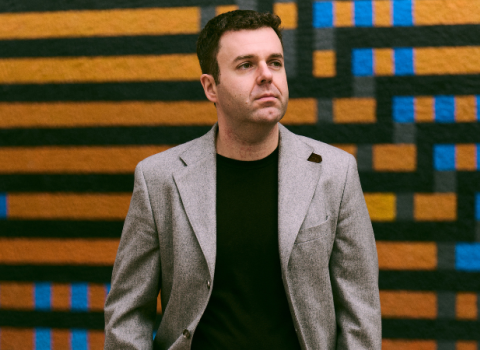What do you do when colleagues in your university laboratory complain that you are taking up valuable research space to run a business and hampering their PhD work?
Answer: Bring in the beer and explain what you are doing.
Above all, make sure the university president supports academic enterprise. Such lab rivalries are not uncommon, and can hinder campus start-ups, according to students attending a meeting earlier this month hosted by the European Institute of Innovation and Technology (EIT). The goal was to gather input from young entrepreneurs on encouraging technological innovation and entrepreneurship in Europe.
The breakfast session, following the Third Annual Science|Business Academic Enterprise conference and awards dinner, brought together many of the winners and finalists, along with other delegates, including John Vassallo, vice president of EU Affairs for Microsoft, Allyson Reed, director of strategy and communications at the UK Technology Strategy Board, a national innovation agency, and Filipe Santos, associate professor of entrepreneurship at INSEAD.
An expert panel included Daria Tataj, member of the EIT Executive Board, Ronald de Bruin, Acting Director of the EIT and Silvio Bonaccio, head of the Technology Transfer Office at ETH Zurich.
Bonaccio believes transparency is the way to avoid tensions in the laboratory between researcher entrepreneurs and graduate students. First, he said, you need to tell the other researchers in the lab that starting a business does not mean that you are rolling in money. But to really avert conflicts, it’s vitally important to have support for spinoffs at the highest level, said Bonaccio. “You need a top-down commitment, with clear rules about how it is going to work.”
This was a key message from the meeting on how to promote entrepreneurial thinking among European researchers. Much of the discussion focused on creating the right culture and conditions on campus to support students and researchers who want to take their technology to market. “Entrepreneurship is not a status, it is an attitude,” said Santos. “It means addressing important problems through innovative solutions.”
Boot camps for entrepreneurs
One way to foster that attitude is to provide people with opportunities to share their thinking with like-minded individuals. This can be done through, for example, ‘boot camps’ that provide intensive training for entrepreneurs along with opportunities to work on ideas with other young innovators. Such gatherings not only provide training, they create communities that people can tap into as their companies progress.
Tataj noted that the EIT already supports young innovators in this way, with the Climate Change Knowledge and Innovation Community (KIC) holding summer schools in London, Paris and Zurich in 2010. Young researchers and entrepreneurs heard about the latest climate-change science, and the issues influencing the market for climate change innovation, such as policy, legal and financial incentives and constraints.
Mentoring young entrepreneurs
The EIT also wants to promote mentoring for young entrepreneurs, and Tataj asked delegates for ideas students what kind of mentoring programe would work best. The ACES finalists were emphatic: Mentors should be entrepreneurs and innovators with experience creating and growing companies, rather than seasoned managers from multinational corporations.
In fact, managers who have spent a lifetime at big companies risk giving start-ups the wrong advice, because they have never run one, one graduate student noted. Experience in a large multinational may not be in line with the needs of someone running a small start-up with three employees.
Serial entrepreneurs make the best mentors believes Kristo Ovaska, co-founder of Aalto Venture Garage at Aalto University in Finland and winner of this year’s ACES Bridge Award. A senior executive working for a multinational agreed, “Old school mentors will judge you against old yardsticks,” he said. “Don’t hire someone like me as a mentor. You need to be measured by your peers.”
In matching young entrepreneurs with mentors, you have to, “see if the chemistry is right”, according to one speaker who had experience of managing such match making. For example, with something like 500 coaches to call on, ETH has the luxury of being able to choose mentors carefully.
Mentors should have international experience since most technology spin-outs must tackle global markets from the time of launch. Ovaska said that when looking for mentors he is interested in people with exposure in, and knowledge of, other countries. “We don’t take people who have only worked in Finland because they will teach people how to do business in Finland.”
Learning the basics
While it’s vital to have guidance and inspiration from other innovators, young entrepreneurs said they also value classic courses, covering the basics of setting up and running a technology company. Some universities have mini ‘crash courses’, in business, providing an opportunity to walk away from the research laboratory for a week or two and to indulge in an intensive business course alongside other young entrepreneurs.
The important point is not to take young entrepreneurs or researchers away from their companies for too long. “It has to be short and intensive,” as one put it. Engaging young entrepreneurs in such activities also has an added bonus of helping to build communities.
Courses would include topics on, for example, writing a business plan. As one speaker put it, “The basics are important if you don’t know anything about how to get started”.
Business plans
But don’t assume there is a one-size fits all model for innovation. For example, it isn’t always appropriate to start with a business plan. “Our biggest obstacle was the reluctance of the investment community to understand that our business could have developed in different directions, depending on the market,” said one young ACES 2011 award winner. “We didn’t want to exclude any of them too early. “Business angels, “were way more flexible. We still have four or five business models that we could pursue.”
Money matters
Participants agreed that campus entrepreneurs need to spend time talking to customers, developing prototypes and testing the market before seeking venture capital. In the early stages of forming a start-up, small amounts of money can go a long way.
In 2012 the EIT will be sponsoring an ACES awards for young entrepreneurs [EIT announces awards for entrepreneurs], and Tataj said the EIT plans to provide some seed funding as well as “a more sustainable engagement” with mentors and other support.
Officials from universities and national technology transfer agencies attending the ACES conference said “proof-of-concept” seed funds which help entrepreneurs move from the initial testing of a concept to market-ready business are an excellent tool to support academic entrepreneurship. Students at the EIT breakfast praised the proof-of-concept seed funding programmes run by the Technology Strategy Board in the UK and Swiss government authorities.
Switzerland’s Venture Kick program allows campus entrepreneurs to compete for a first tranche of CHF10,000 with a “brilliant business idea.” Winners are coached and may go on to compete for CHF 20,000 in additional funding by creating a solid business case, including target customers and strategic partners. Those who make it to the second phase of start-up development receive more coaching to prepare them for the final contest for CHF100,000 – requiring a convincing business plan and team ready to tackle the market. The winners of the third phase are then coached by a serial entrepreneur. The programme’s success rate is 80 per cent, with four 2011 ACES finalists from Switzerland having received Venture Kick backing.
Providing access to expensive equipment
University start-ups also can be encouraged by offering access to expensive equipment, particularly in the life science where something like a DNA analysis system is beyond the financial resources of a start-up, and something that investors will not want to fund. ETH Zurich, for example, has schemes that allow its spin-out businesses up to three years’ access to equipment and office space on campus at a nominal rate.
Building in a European dimension
In Europe it’s difficult to build a successful business purely on national markets and academic entrepreneurs face the challenge of tackling international markets from the start. One idea to accelerate cross-border growth was to network with entrepreneurs across Europe and partner with teams in another country for local exploitation.
Changing attitudes toward entrepreneurship
A new attitude toward entrepreneurship is starting to take root on European campuses and could be encouraged through broader communication of role models and success stories. During a discussion on coping with the risks inherent in being an entrepreneur, a UK researcher-entrepreneur said, “The real risk is spending the best years of your life doing stuff that you don’t like.”
But another young entrepreneur pointed out that the academic life is far from secure. “I like doing research but there is no job security.” Running your own company gives you much more control over your life.
To create a more positive culture of entrepreneurship on campus, students said public officials should help make entrepreneurship become a conventional career choice, emphasing the benefits entrepreneurs bring to society, instead of focusing on the risk of failure. To create a vibrant start-up culture, Europeans should stop viewing entrepreneurs as “an exception” to what’s normal.
Key points and conclusions
• Access to scientific equipment can be an important factor in the success of a tech start-up
• Universities need to make a top-down commitment to entrepreneurship on campus from the highest level, to avoid academic rivalries that can hamper promising entrepreneurs
• Business models across different industries vary widely. The needs of a start-up in information and communications technologies are different from those in life sciences or pharmaceuticals.
• There can be too much emphasis on developing a business plan. Some ideas need to be developed before a business plan is imposed.
• The best mentors are serial entrepreneurs – or recent innovators - those with experience creating and growing companies. Multinational executives can teach business basics, but they cannot offer advice on the many risks and challenges of starting a company, or how to succeed as an entrepreneur.
• Europe’s entrepreneurs face different challenges from those in the US and Asia. Even within Europe the issues vary from country to country. “Europe is not like the US or China.”
• It is important to prepare for failure – not all businesses will succeed. Europe needs better appreciation of the ‘value’ of bankruptcy. In Silicon Valley, a failure means “experience” and ensures you won’t make that mistake the next time.
• To change European attitudes about failure, why not sponsor a ‘phoenix’ award for someone who has come back for a second attempt at starting a new tech business and succeeded?
• Success does not have to be defined in American terms. Europeans are satisfied with less dramatic growth than start-ups in the US. Social entrepreneurship is popular in Europe.'
• Researchers need time away from the lab to learn about starting a new business, even though it may affect their research careers. Boot camps for academic entrepreneurs can play an important role.
• Universities could hire more “IP scouts” - serial entrepreneurs who hunt through a university’s research portfolio and bring ideas forward for commercialisation.
• Companies working in a university have to worry about confidentiality and avoid ‘turf wars’ between academics.
• Role models and success stories are the most effective method of inspiring a greater number of university spin-outs.





 A unique international forum for public research organisations and companies to connect their external engagement with strategic interests around their R&D system.
A unique international forum for public research organisations and companies to connect their external engagement with strategic interests around their R&D system.